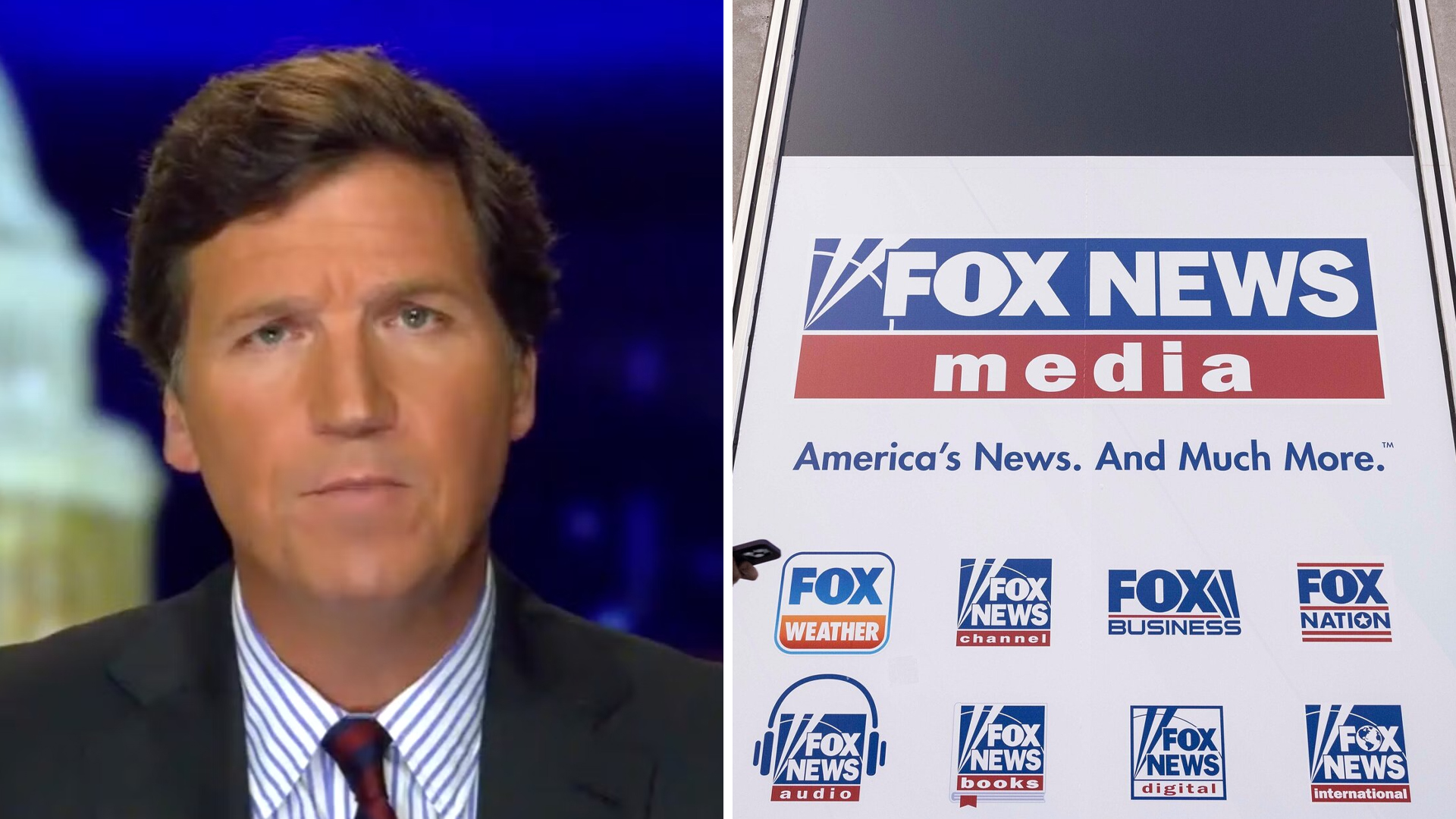In what is developing into an epic standoff between the media giant Fox News and its erstwhile leading light, Tucker Carlson, the latest round of contention centers on the inception of Carlson’s riveting new project, dubbed “Tucker on Twitter.” As the ex-news anchor continues to experience remarkable success with his new endeavor, Fox News has retaliated by issuing a fresh cease-and-desist order to Carlson following the release of his second episode on the popular social media platform.
Reported first by Axios, the cease-and-desist order, boldly stamped with “NOT FOR PUBLICATION” in all capital letters, appeared not long after the successful release of Carlson’s second installment of “Tucker on Twitter.” Astonishingly, by Monday morning, the second episode had garnered an impressive audience of nearly 55 million viewers. With just two episodes released, Carlson’s new series has already captivated an astounding total of 169 million viewers.
The bone of contention revolves around Fox News’ insistence that Carlson, who continues to draw a salary from the network through the end of 2024, should abstain from commenting publicly on current affairs. In a robust rebuttal, Carlson’s legal team, led by Harmeet Dhillon, have invoked his First Amendment right to free speech, while simultaneously accusing Fox News of substantial breaches of its contractual obligations with Carlson.
Dhillon, who is spearheading Carlson’s legal defense, delivered a fiery critique of Fox News. She took to Twitter, saying, “My friend and client @TuckerCarlson will not be silenced — by the far left or by Fox News. For all the friends who have been asking ‘why don’t we see you on Fox anymore?’ — This is why. I am passionately committed to free speech and a free flow of information necessary for a free society. Until Fox stops trying to silence Tucker, it’s not a place for me.”
As the dust continues to settle on this legal skirmish, sources close to Carlson’s fledgling production team hinted at his plans to intensify his new venture by creating an array of longer and more diverse episodes that may also include guest appearances. Justin Wells, Carlson’s executive producer, ignited further anticipation by tweeting, “Next Episode of Tucker on Twitter coming Tuesday: Tucker’s response to the indictment of President Donald Trump.”
The standoff seems to be escalating, with Dhillon reiterating in her statement to Axios that Fox News is falling short on its pledge to its viewers. She accused the network of disregarding viewer interest and sidestepping shareholder obligations. Dhillon claimed that Fox News’s attempt to silence Carlson was an illustration of “the most catastrophic programming decision in the history of the cable news industry.”
“Fox is now demanding that Tucker Carlson be silent until after the 2024 election,” Dhillon continued in her statement. She further affirmed, “Tucker will not be silenced by anyone … He is a singularly important voice on matters of public interest in our country and will remain so.”
Upon being questioned about the publication of its cease-and-desist letter, Fox News declined to comment, indicating the intensifying tension between the two parties. This ongoing saga between Fox News and Tucker Carlson continues to grip the attention of millions, serving as a symbol of the dynamic and sometimes fractious relationship between news networks and their high-profile anchors. The unfolding story presents an intriguing case of balancing the rights of individuals to freedom of speech and expression against the obligations set out in contractual agreements.
As the world observes this unfolding media battle with bated breath, it is crucial to note the wider implications of this confrontation. Should Fox News succeed in silencing Carlson until the conclusion of his contract in 2024, it would not only quell one of the most influential voices in modern media, but also set a precedent for network control over their talent, even when they’re off the air. On the other hand, a triumph for Carlson would highlight the resilience of First Amendment rights, even in the face of formidable corporate challenges.
Whichever way this narrative develops, it has already cast a glaring spotlight on the often-overlooked tussles behind the scenes in the world of broadcast news. It serves as a reminder that while the news anchors deliver their bulletins with calm composure, turbulent storms can be brewing off-screen.
Meanwhile, “Tucker on Twitter” continues to soar, bolstering the argument that regardless of the platform, engaging content and a loyal fan base are key ingredients for success. However, the looming threat of legal repercussions could place a shadow over this project’s future.
The silence of Fox News, following the publication of its cease-and-desist letter, only adds more fuel to this fiery controversy. It prompts questions about the network’s future strategies and whether it will choose to further engage in public disputes with its former top anchor or prefer to handle matters behind the scenes.
In conclusion, this saga between Fox News and Tucker Carlson exemplifies the evolving dynamics of the media industry, where the lines between traditional TV news and digital platforms are blurring, and the power of the individual voice is growing ever stronger. As this tale continues to unfold, it remains to be seen who will have the last word. Will it be the erstwhile news giant Fox News, or will it be the uncompromising and unapologetic voice of Tucker Carlson? Only time will tell.

